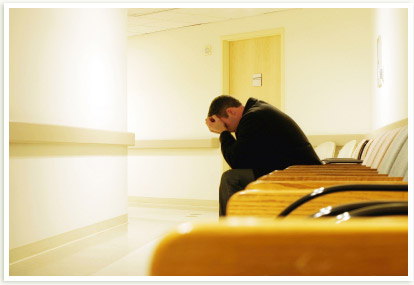Why do we lack compassion for bereaved families of those who have died from alcohol or drugs?
The bereaved families of drug or alcohol-related deaths remain a hidden and neglected group, with profound consequences for their own health and well-being.
30 Jun 2015There were well over 8,000 alcohol-related and 4,000 drug-related deaths registered in England and Wales in 2012. And the actual numbers are likely to be far higher than suggested by official statistics because some deaths are not recorded or categorised as being alcohol or drug-related.
One consequence of the stigma behind drug/alcohol related deaths is the frequently poor and insensitive treatment the bereaved families may receive at the hands of the professionals dealing with this kind of death. This can include those working for the NHS, police and legal authorities, funeral services and drug and alcohol treatment and bereavement services.
A study by the universities of Bath and Stirling conducted lengthy interviews with 106 family members bereaved in this way. Some participants reported being treated with empathy and respect. But more often they met with responses that reinforced the sense that their loss was considered less important than that associated with other types of death.

A working group of 12 mainly front-line practitioners took on the task of developing a set of best-practice guidelines for those whose work brings them into contact with these bereaved people. Written by practitioners for practitioners, these guidelines directly engage the reader and invite empathy for the bereaved by explaining their predicament. They are built around five key messages from the interview data, which reflected what the bereaved family members said they needed.
These messages are that every practitioner must remember: to show kindness and compassion; that language is important; that every bereaved person is an individual; that everyone can make a contribution; and to work together.
Click here to read the full article
Doctors can lead the way to healthier drug policies – join IDHDP now.
Share this on: